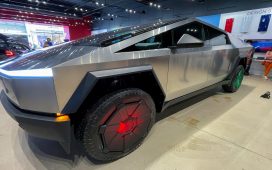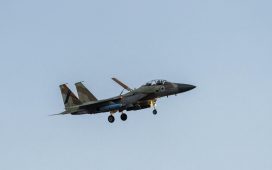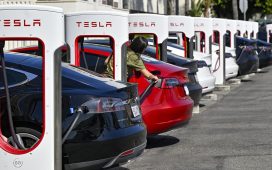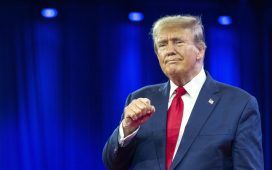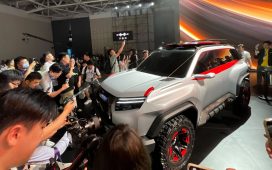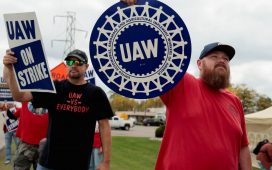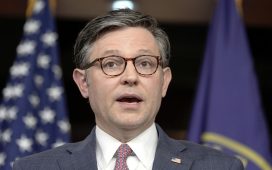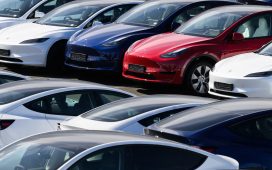Elon Musk, chief executive officer of Tesla Inc., speaks during an event at the site of the company’s manufacturing facility in Shanghai, China, on Monday, Jan. 7, 2019.
Qilai Shen | Bloomberg | Getty Images
Tesla and Ford have the most to lose among U.S. automakers on China’s announcement Friday to re-impose a 25% tariff later this year on American vehicles entering the country.
The two American car companies are among the top exporters of U.S.-produced vehicles to China along with BMW and Mercedes-Benz, which is owned by Daimler, according to Kristin Dziczek, vice president of Industry, Labor & Economics at the Center for Automotive Research, a nonprofit research firm in Ann Arbor, Mich.
While General Motors and others have significant sales in China, they have local production facilities and joint ventures with Chinese companies that help shield them from tariffs. GM produces the vast majority of its vehicles sold there in China.
Mercedes-Benz exports some cars to China from its Alabama plant, and BMW sends some cars from its Spartanburg, South Carolina, factory to China. Exported models include the BMW X5 and Mercedes-Benz GLE. Tesla currently exports all of its vehicles sold in China from its Freemont plant in California.
Barclays analyst Brian Johnson in a note last April amid trade uncertainty between the U.S. and China noted that Tesla could be the U.S. automaker most hurt by a trade war with China.
Tesla would avoid some of the tariff hike once the company completes construction of its Gigafactory 3 plant in Shanghai, China. The company broke ground on the $2 billion factory in January. It is expected to be begin production by the end of the year.
The 25% tariff as well as a 5% tariff on auto parts and components are scheduled to take effect Dec.15. China had paused the tariffs in April. The Chinese State Council announced the auto tariffs Friday as part of new tariffs on $75 billion worth of U.S. goods as part of the country’s ongoing trade war with the U.S.
Representatives for Tesla and BMW did not immediately respond for comment. Mercedes-Benz declined to comment.
Ford declined to comment on the direct impact of the 25% tariff but said the company “is the leading exporter of vehicles assembled in the U.S. and we are uniquely a net exporter to China.”
“We encourage the U.S. and China to find a near-term resolution on remaining issues through continued negotiations,” Ford said in an emailed statement to CNBC. “It is essential for these two important economies to work together to advance balanced and fair trade.”
John Bozzella, who chairs the ad-hoc group “Here for America” that includes VW, Daimler and BMW, said the “tit-for-tat tariffs, absent any meaningful negotiations, are damaging to the American auto industry.”
“When these tariffs were initially imposed by China in 2017, American exports of finished vehicles dropped by 50 percent,” he said in a statement. “We can’t let that happen to American workers again.”
Tesla CEO Elon Musk has complained that the current trade between the U.S. and China is lopsided and unfair to American companies.
While discussing third-quarter earnings in October, Tesla said it costs 55% to 60% more to make its vehicles than “the exact same car” made by Chinese producers. The market in China is “by far the largest” in the world for electric vehicles, Tesla said.
According to Tesla, the new China facility “will allow Tesla to localize production of Model 3 and future models sold in China, with plans to eventually produce approximately 3,000 Model 3 vehicles per week in the initial phase and to ramp up to 500,000 vehicles per year when fully operational (subject to local factors including regulatory approval and supply chain constraints).”
Tesla shares midday Friday were down about 4% after opening at $219.97.
